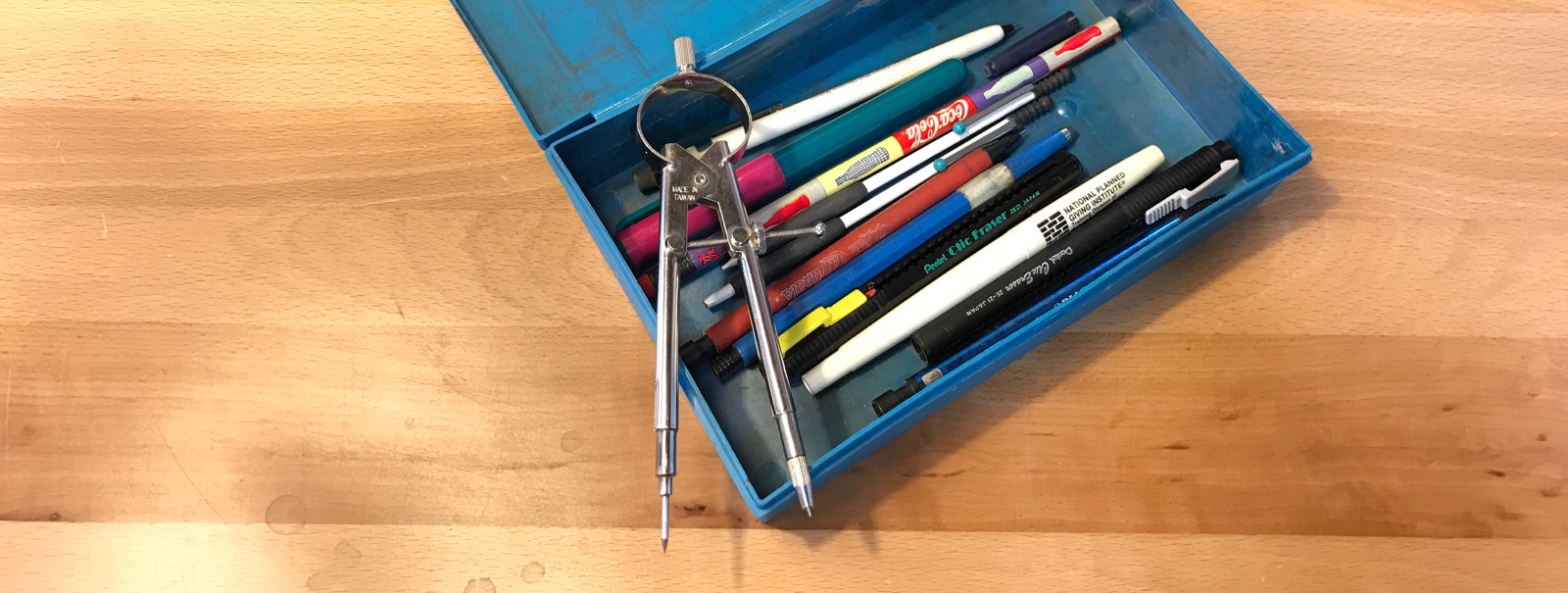January 28, 2017
Atrocity Capacity and the Gentle Giant

My pencil box concealed a weapon.
It held a pencil on one end and a metal spike on the other.
You're supposed to use it to draw circles, but thrust it at soft flesh and you will draw blood.
Third-graders are cruel but most of us weren't stupid enough to actually stab our classmates.
Jessica was a gentle giant.
She had a deep voice, curly red hair, crooked teeth, pale freckled skin, glasses, and a doomed desire to fit in. She was a perfect storm of virtues that extracted the devil from the souls of every kid she met.
Our tribe rallied around a collective superiority complex, a ruthless mob mobilized to destroy Jessica.
I remember our variation of tag, our crossed fingers and gleeful terror as we contracted and spread Jessica's germs.
I remember the taunts, the insults that drove her to tears, and how easy it was to suppress my guilt.
There were nicknames, insults, words that civilized people censor from their vocabulary.
An evil idea, a dare, a tiny push by my peers was all it took to persuade me to stab Jessica.
Her desk was in front of mine. When she sat down the spike of my compass pierced her backside.
She shrieked in pain and fear.
Our teacher was only a few paces away when I punctured her skin. Once Jessica had calmed down, he pulled down her pants to uncover a bloody hole.
My classmates, silent as lambs, let out a gasp.
There was no denying it, I stabbed her in clear view. I confessed, apologized, regretted the terrible thing I had done.
My punishment was much less than I deserved. I expected the paddle but I was spared the "board of education” in favor of a more unusual penalty. Instead of a beating, we said a prayer.
Our teacher said words and I repeated them in front of the class. Through tears I prayed for forgiveness, for God to soften my heart, for Him to transform our class into loving beings. I asked God to re-sensitize us to guilt so we could feel the weight of our words and the consequences of our cruelty.
After my public prayer, there was a small miracle. Jessica forgave me.
Three decades later I am still struggling with this lesson.
I look around and it seems that civility has gone off the rails. The rallies, the rage, the righteous indignation, the eagerness to injur people that aren't like us is everywhere. Adults have reverted to the gangs of our youth and yet we are in denial of our atrocity capacity. We edit the movies in our skulls to leave out the monster in the mirror.
Usually I comfort myself with the good stuff, I build my backstory on the innocent details of my childhood – acolyting at church on Sunday mornings, basketball games and first love, the pinewood derby and boy scout's honor, graphite drawings of birds – I conveniently ignore the chapter where I was capable of wounding an innocent child. The problem is if I deny the existence of that sinful boy, I also forget about Jessica's forgiveness.
There's still a ten-year-old monster hiding in the dark corners of my mind, concealing weapons in pencil boxes, still only a nudge away from another evil deed. He is the profanity on the tip of my tongue, my dark desires, the grudges, and my justification of questionable decisions. When life's daggers cut, when cruelty punctures my perfectly manicured reality, will I remember the strength of the gentle giant? In addition to the atrocities, have I retained Jessica's capacity to forgive? Or is that just another artifact of childhood, a blemish of youth that gets photoshopped out in order to conform with the trends of my social feed?
Thanks for reading. I write confessions like this every week, you should follow me and join my tribe. Stay creative.